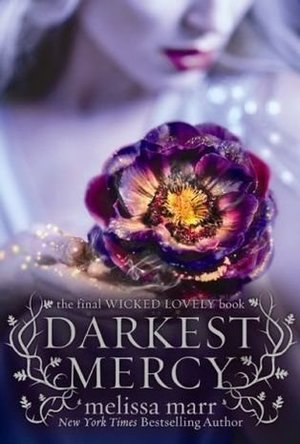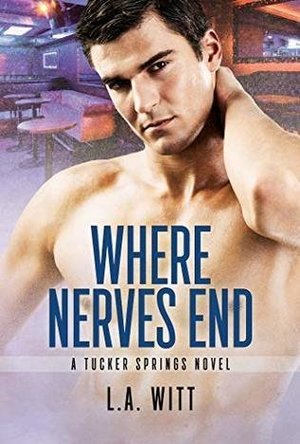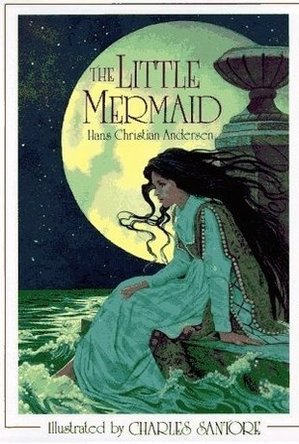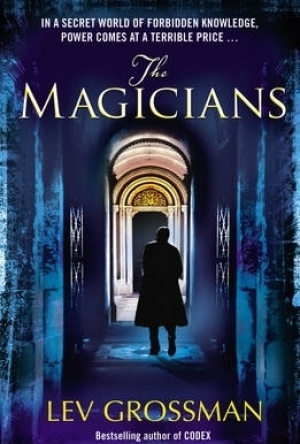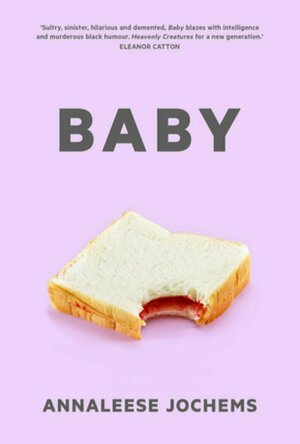Search
Rachel King (13 KP) rated Darkest Mercy (Wicked Lovely, #5) in Books
Feb 11, 2019
The final book in the Wicked Lovely series, this book does a thorough job of wrapping up all of the sub-plots that were left hanging throughout the books. As with any decent book series, there were lots of what-ifs that I never got to see play out, but Marr's focus seemed to be on resolving the obstacles that blocked a number of romantic relationships within the series, such as Donia and Keenan's. Many of the main players made an appearance in the book, with quite a number of them exchanging point-of-view for the benefit of the reader. A few new characters were even introduced, such as the king of the water fey that Keenan sought out.
With the build-up to Aislinn deciding between Keenan and Seth in the previous books, her final decision seemed sort of anti-climactic, though I still liked her decision. I also really liked what followed, though I get the feeling that this series was more about female power, than a balance of power between male and female.
Reading about Niall's disconnection and madness was quite fascinating, though I believed for most of the book that it was for reasons other than what was revealed. I was quite thrilled when Leslie showed up, though her part seemed rather short and abrupt. Seth's part in the book also seemed stilted. For all his talk and potential, he is not allowed to do much due to poor circumstances, and I was really quite disappointed, as he has always been my favorite character in the series.
The final battle in the faery war was gruesome, but short and filled with more talk than necessary. The two faeries whose specialty was death seemed to have much potential for creating obstacles, but in the end they just seemed to have rather simple lives - even to the point of ignorance.
I actually would love for this series to continue, if only to focus more on the politics and power games, since this book seemed to be all about everyone's romantic happily ever after.
With the build-up to Aislinn deciding between Keenan and Seth in the previous books, her final decision seemed sort of anti-climactic, though I still liked her decision. I also really liked what followed, though I get the feeling that this series was more about female power, than a balance of power between male and female.
Reading about Niall's disconnection and madness was quite fascinating, though I believed for most of the book that it was for reasons other than what was revealed. I was quite thrilled when Leslie showed up, though her part seemed rather short and abrupt. Seth's part in the book also seemed stilted. For all his talk and potential, he is not allowed to do much due to poor circumstances, and I was really quite disappointed, as he has always been my favorite character in the series.
The final battle in the faery war was gruesome, but short and filled with more talk than necessary. The two faeries whose specialty was death seemed to have much potential for creating obstacles, but in the end they just seemed to have rather simple lives - even to the point of ignorance.
I actually would love for this series to continue, if only to focus more on the politics and power games, since this book seemed to be all about everyone's romantic happily ever after.
TacoDave (3991 KP) rated Wonder Park (2019) in Movies
Mar 18, 2019
Kind of inoffensive? (1 more)
Animation is fine
The plot (2 more)
The concept
The execution
Horrible Park
Contains spoilers, click to show
I have five kids. So I've seen a ton of kids' movies. Some are good, some are bad, and some are meh. "Wonder Park" falls completely and stubbornly into the bottom range of Meh. It's not so bad that you hate yourself for watching it, but it isn't even interesting enough to hold your attention for the 80-minute runtime.
"Wonder Park" is about an imaginary amusement park called Wonderland (they never explain the discrepancy in name versus the name of the movie) invented by a young girl. She talks about the park, she draws pictures of it, she makes models of it, and she creates new rides with the help of her mom.
Unfortunately, in a real downer of a plotline, her mom gets sick with an unnamed illness and has to go away to see specialists somewhere. This makes the girl depressed, which makes her stop using her imagination, which makes her stop caring about Wonderland.
Then, in a situation that makes no sense, she hops off of a bus on the way to Math Camp, takes off on her own through the woods, and stumbles onto a real-life version of Wonderland run by real talking animals. Except there's a problem: Wonderland is being destroyed by a big black cloud and a sea of stuffed monkeys.
The girl eventually realizes (duh!) that the black cloud is basically her sadness, and to save the park she has to learn to use her imagination again. So she does. Then she leaves the park, goes back home, and her mom is magically better from the illness and everyone presumably lives happily ever after.
It's a neat concept (kid creates amusement park!) with bad execution, a terrible story, and too much depression for a kids' movie. Plus it wraps up too neatly. And it isn't funny. And I literally almost fell asleep watching it.
If you have to see a family movie, you can do a lot better than this one. I wouldn't even recommend renting it from Redbox. It is that bland and inoffensive.
"Wonder Park" is about an imaginary amusement park called Wonderland (they never explain the discrepancy in name versus the name of the movie) invented by a young girl. She talks about the park, she draws pictures of it, she makes models of it, and she creates new rides with the help of her mom.
Unfortunately, in a real downer of a plotline, her mom gets sick with an unnamed illness and has to go away to see specialists somewhere. This makes the girl depressed, which makes her stop using her imagination, which makes her stop caring about Wonderland.
Then, in a situation that makes no sense, she hops off of a bus on the way to Math Camp, takes off on her own through the woods, and stumbles onto a real-life version of Wonderland run by real talking animals. Except there's a problem: Wonderland is being destroyed by a big black cloud and a sea of stuffed monkeys.
The girl eventually realizes (duh!) that the black cloud is basically her sadness, and to save the park she has to learn to use her imagination again. So she does. Then she leaves the park, goes back home, and her mom is magically better from the illness and everyone presumably lives happily ever after.
It's a neat concept (kid creates amusement park!) with bad execution, a terrible story, and too much depression for a kids' movie. Plus it wraps up too neatly. And it isn't funny. And I literally almost fell asleep watching it.
If you have to see a family movie, you can do a lot better than this one. I wouldn't even recommend renting it from Redbox. It is that bland and inoffensive.
Hazel (1853 KP) rated Who Do You Love in Books
Dec 7, 2018
<i>This ARC was provided by the publisher via NetGalley in exchange for an honest review
Who Do You Love</i> is the latest contemporary romance by the author Jennifer Weiner. Beginning in 1985 it tells the story of two contrasting characters up until the year 2015. Rachel was born with a congenital heart condition that resulted in her being hospitalized a number of times during her childhood. When she was eight years old she met an injured boy named Andy and struck up a very brief friendship. Later she coincidently meets him again during her teens, and the pair fall in love, resulting in an on and off long distance relationship over the following years.
Despite their love for each other, the two main characters come from completely different backgrounds. Putting her heart condition aside, Rachel had a fairly pleasant Jewish upbringing, with well off parents, a pool in her back yard, the chance to go to any college she wished to. Andy, on the other hand, attended a Roman Catholic school where he was constantly getting in to trouble for fighting when others teased him about his poor, single parent home life, or his deceased black father. However, regardless of their upbringing, Rachel grows up to become a fairly successful social worker, and Andy an Olympic athlete.
The reader gets the chance to learn about each character through the alternating points of view. Ultimately we wish that Andy and Rachel could live happily ever after together, but as we read, life and differences often get in the way. This will they, won’t they idea exists throughout the entire novel making the ending rather predictable, although not at all disappointing.
Personally I preferred the narrative toward the beginning of the story. It was interesting to read about Rachel’s heart problems, and Andy’s struggles growing up. Once they reached adulthood their relationship became more sexual, something that was written about in far too much detail.
<i>Who Do You Love</i> is the kind of book suitable for women to read over the summer, or anytime they have the opportunity to sit back and relax. It is not a quick read due to its lengthy chapters, therefore the less distractions the better!
Who Do You Love</i> is the latest contemporary romance by the author Jennifer Weiner. Beginning in 1985 it tells the story of two contrasting characters up until the year 2015. Rachel was born with a congenital heart condition that resulted in her being hospitalized a number of times during her childhood. When she was eight years old she met an injured boy named Andy and struck up a very brief friendship. Later she coincidently meets him again during her teens, and the pair fall in love, resulting in an on and off long distance relationship over the following years.
Despite their love for each other, the two main characters come from completely different backgrounds. Putting her heart condition aside, Rachel had a fairly pleasant Jewish upbringing, with well off parents, a pool in her back yard, the chance to go to any college she wished to. Andy, on the other hand, attended a Roman Catholic school where he was constantly getting in to trouble for fighting when others teased him about his poor, single parent home life, or his deceased black father. However, regardless of their upbringing, Rachel grows up to become a fairly successful social worker, and Andy an Olympic athlete.
The reader gets the chance to learn about each character through the alternating points of view. Ultimately we wish that Andy and Rachel could live happily ever after together, but as we read, life and differences often get in the way. This will they, won’t they idea exists throughout the entire novel making the ending rather predictable, although not at all disappointing.
Personally I preferred the narrative toward the beginning of the story. It was interesting to read about Rachel’s heart problems, and Andy’s struggles growing up. Once they reached adulthood their relationship became more sexual, something that was written about in far too much detail.
<i>Who Do You Love</i> is the kind of book suitable for women to read over the summer, or anytime they have the opportunity to sit back and relax. It is not a quick read due to its lengthy chapters, therefore the less distractions the better!
Debbiereadsbook (1664 KP) rated Where Nerves End (Tucker Springs #1) in Books
Nov 2, 2018
warm and fuzzies, people, warm and fuzzies!
Independent review for Divine Magazine, I was gifted my copy of this book.
Jason is faced with two choices: an increase in pain medication, or a visit to the acupuncturist his friend keeps recommending. He opts for the latter to relieve his shoulder pain, but it is costly. Finding out Michael was also struggling financially, Jason suggests they become room mates, since Jason has room. Jason just never factored in the attraction he has for Michael, especially since Michael is straight, right?
Warm and fuzzies, right here! I really enjoyed this! I mean, I must have. I went to bed to read a few pages before sleep and 90 minutes later, I'm done! One late night sitting and I made a new shelf for them too!
My only niggle is that only Jason has a say! Even though it;s first person, I think if Michael had been given a voice, this would have been a 5 star read. Michael does go against his feelings. Well, not really AGAINST them, more he lets his TRUE feelings free and I wanted to ear from him at key points along the way. There were many of them, too, but mostly his first meeting with Jason; when Michael does what he does to set Jason off and the bits in between, when they are fighting the attraction so bloody hard it made my teeth hurt!
It's not really a Happy Ever After ending, either, at least I didn't think so. Oh they get together and announce it to every one and they are happy, I just feel there might be more to come from these guys! Is there?? I hope so!
This appears to be the first book in a series written by (that I can see) 3 different authors, set in Tucker Springs which is the series name. I'd certainly read more of them, by Witt especially. Her book "Nine Tenths of The Law" spurned a new shelf too, "too stinking cute". I'd quite happily read other books in the series, just to see who pops up along the way!
So, ONLY because Michael doesn't get a voice
4 stars
**same worded review will appear elsewhere**
Jason is faced with two choices: an increase in pain medication, or a visit to the acupuncturist his friend keeps recommending. He opts for the latter to relieve his shoulder pain, but it is costly. Finding out Michael was also struggling financially, Jason suggests they become room mates, since Jason has room. Jason just never factored in the attraction he has for Michael, especially since Michael is straight, right?
Warm and fuzzies, right here! I really enjoyed this! I mean, I must have. I went to bed to read a few pages before sleep and 90 minutes later, I'm done! One late night sitting and I made a new shelf for them too!
My only niggle is that only Jason has a say! Even though it;s first person, I think if Michael had been given a voice, this would have been a 5 star read. Michael does go against his feelings. Well, not really AGAINST them, more he lets his TRUE feelings free and I wanted to ear from him at key points along the way. There were many of them, too, but mostly his first meeting with Jason; when Michael does what he does to set Jason off and the bits in between, when they are fighting the attraction so bloody hard it made my teeth hurt!
It's not really a Happy Ever After ending, either, at least I didn't think so. Oh they get together and announce it to every one and they are happy, I just feel there might be more to come from these guys! Is there?? I hope so!
This appears to be the first book in a series written by (that I can see) 3 different authors, set in Tucker Springs which is the series name. I'd certainly read more of them, by Witt especially. Her book "Nine Tenths of The Law" spurned a new shelf too, "too stinking cute". I'd quite happily read other books in the series, just to see who pops up along the way!
So, ONLY because Michael doesn't get a voice
4 stars
**same worded review will appear elsewhere**
Ivana A. | Diary of Difference (1171 KP) rated The Little Mermaid in Books
Nov 16, 2018
Full review can also be found on my blog: www.diaryofdifference.com
I grew up with Disney movies, and my favourite one was the one with the mermaid that has long red hair, and I loved her love story, and also enjoyed watching the rest of the movie series that followed years later.
And while loving Ariel for so long, I have never actually read the original story. So a few weeks ago, I decided to cherish it properly, as a true childhood love deserves to be cherished.
And I was left with my jaw dropped and my mouth open, unable to sleep. I can’t say this book crushed my childhood love, but it definitely shook me quite hard.
If you are expecting to read about the little mermaid, and her adventures in the water, and how she would give anything to see how people live on Earth, and fall in love with a prince – you will get all that. In fact – the book description is far better compared to the movie. Incomparable, actually. The book glows with bright colourful descriptions of the world under the sea, and it is so vividly enchantingly explained.
But if you are expecting to read about the adorable love story of Ariel and the prince, and their happily ever after – that is not happening. Because things go wrong. Horribly wrong. With a crushing, terrible end, that will torture you in your dreams.
It wasn’t my intention to make this review so dark. The story is still wonderful, and full of life. However, there is no happy ending, and that, for me, was crucial to not enjoy it.
And I am not usually upset with unhappy endings. It happens so often. But this one was so brutal and cruel, that it felt so disturbing. Maybe, because it is my favorite childhood movie. Maybe, because I knew this to be a happy story. Maybe, because I didn’t expect this at all.
Hans Christian Andersen is an amazing writer. I have read many of his stories, and enjoyed them greatly. I honestly don’t know what was going on in his life when he was writing this, but wow. Just wow.
I grew up with Disney movies, and my favourite one was the one with the mermaid that has long red hair, and I loved her love story, and also enjoyed watching the rest of the movie series that followed years later.
And while loving Ariel for so long, I have never actually read the original story. So a few weeks ago, I decided to cherish it properly, as a true childhood love deserves to be cherished.
And I was left with my jaw dropped and my mouth open, unable to sleep. I can’t say this book crushed my childhood love, but it definitely shook me quite hard.
If you are expecting to read about the little mermaid, and her adventures in the water, and how she would give anything to see how people live on Earth, and fall in love with a prince – you will get all that. In fact – the book description is far better compared to the movie. Incomparable, actually. The book glows with bright colourful descriptions of the world under the sea, and it is so vividly enchantingly explained.
But if you are expecting to read about the adorable love story of Ariel and the prince, and their happily ever after – that is not happening. Because things go wrong. Horribly wrong. With a crushing, terrible end, that will torture you in your dreams.
It wasn’t my intention to make this review so dark. The story is still wonderful, and full of life. However, there is no happy ending, and that, for me, was crucial to not enjoy it.
And I am not usually upset with unhappy endings. It happens so often. But this one was so brutal and cruel, that it felt so disturbing. Maybe, because it is my favorite childhood movie. Maybe, because I knew this to be a happy story. Maybe, because I didn’t expect this at all.
Hans Christian Andersen is an amazing writer. I have read many of his stories, and enjoyed them greatly. I honestly don’t know what was going on in his life when he was writing this, but wow. Just wow.
Kelly (279 KP) rated The Magicians: Book 1 in Books
Nov 22, 2018
Harry Potter for grown ups
Contains spoilers, click to show
I was a fan of this book long before the TV series of the same name, and a firm believer that the book in this case is better than the screen. Unlike the TV series, the book comes across more intelligently and the characters are a lot more relatable. Lev Grossman uses popular fantasy books such as The Chronicles of Narnia and the Harry Potter series for ideas for this novel, but adapts these childhood fantasies to an adult level.
Quentin, the main character within the novel is not your usual hero, being the high achieving teenager who could never quite best his peers, is fixated by a Narnia style story from his child hood (Fillory), which he could never quite overcome. The narrative shares Quentins journey from joining a magical college, making friends to early adulthood and finding that Fillory is real.
Despite the obvious links to other stories, Lev Grossman intelligently uses his story to explore a range of issues such as sexuality and depression, making his characters more relatable to the reader. The villains and events in the story are a lot more sinister than you might expect from a tale that combines so many of our childhood favourites, demonstrating Grossmans clever use in adult emotions. All of this succeeds in engaging the reader even further.
Although this was a book I enjoyed reading from start to finish, I did find the pace was a little fast at times, speeding from one time period in Quentins life to another. I realise that this is because Lev Grossman is portraying the events happening over the course of Quentins late teens and early twenties, but It did become a little frustrating as a reader.
The end of the plot was bitter sweet and did not follow the typical ‘all live happily ever after’ ending that you would expect from this type of tale. Ultimately the book ends on a cliff hanger and left me wanting to know more about what happened next. To me this makes the book a success.
Quentin, the main character within the novel is not your usual hero, being the high achieving teenager who could never quite best his peers, is fixated by a Narnia style story from his child hood (Fillory), which he could never quite overcome. The narrative shares Quentins journey from joining a magical college, making friends to early adulthood and finding that Fillory is real.
Despite the obvious links to other stories, Lev Grossman intelligently uses his story to explore a range of issues such as sexuality and depression, making his characters more relatable to the reader. The villains and events in the story are a lot more sinister than you might expect from a tale that combines so many of our childhood favourites, demonstrating Grossmans clever use in adult emotions. All of this succeeds in engaging the reader even further.
Although this was a book I enjoyed reading from start to finish, I did find the pace was a little fast at times, speeding from one time period in Quentins life to another. I realise that this is because Lev Grossman is portraying the events happening over the course of Quentins late teens and early twenties, but It did become a little frustrating as a reader.
The end of the plot was bitter sweet and did not follow the typical ‘all live happily ever after’ ending that you would expect from this type of tale. Ultimately the book ends on a cliff hanger and left me wanting to know more about what happened next. To me this makes the book a success.
BookwormMama14 (18 KP) rated The Golden Braid (Hagenheim, #6) in Books
Jan 2, 2019
A classic fairy tale, re-imagined like you would never believe! Experience the story of Rapunzel through new eyes.
Rapunzel is an accomplished artist and can throw a dagger better than anyone, however, she longs to learn how to read. When yet another young man proposes marriage to Rapunzel, Mother Gothel whisks them away to the city of Hagenheim. And her dream of learning to read might actually become a reality. When the handsome knight, Sir Gerek, saves them on the road, her opportunity to learn may be here at last! But Rapunzel has been brought up to fear everyone and everything in life. Especially men, claiming that none can be trusted. Despite this fact, Sir Gerek agrees to teach Rapunzel to read. As the story unfolds, truths are revealed, and everything Rapunzel has come to believe about herself changes. Will she find her "Happily Ever After?" Or will she allow fear to consume her as it does for so many.
The Golden Braid is not your typical "Rapunzel, Rapunzel, let down your hair!" re-telling of this classic fairy tale. There are deep truths and weighty lessons that resonate deep within your soul. We have all faced fears.
Have we allowed fear blind us to the truth that our Heavenly Father is protecting us and guiding us? Sometimes bad things happen, and we may never know why. But as children of God we must trust that He knows what He is doing and that He will guide our path. Love is another powerful aspect of this story. That human love, no matter how deep and true, will never be able to satisfy like God's love. While we need earthly love from our family and spouse, we must ultimately cling to the true love our Father love above all others. I had very high expectations for this book and Melanie Dickerson blew them all out of the water! I can not believe I have not read her books before now. I am thrilled to have found her books and am eagerly anticipating reading her next book: A Spy's Devotion.
I received a free digital copy of The Golden Braid from Thomas Nelson Publishers through NetGalley in exchange for my honest review.
Rapunzel is an accomplished artist and can throw a dagger better than anyone, however, she longs to learn how to read. When yet another young man proposes marriage to Rapunzel, Mother Gothel whisks them away to the city of Hagenheim. And her dream of learning to read might actually become a reality. When the handsome knight, Sir Gerek, saves them on the road, her opportunity to learn may be here at last! But Rapunzel has been brought up to fear everyone and everything in life. Especially men, claiming that none can be trusted. Despite this fact, Sir Gerek agrees to teach Rapunzel to read. As the story unfolds, truths are revealed, and everything Rapunzel has come to believe about herself changes. Will she find her "Happily Ever After?" Or will she allow fear to consume her as it does for so many.
The Golden Braid is not your typical "Rapunzel, Rapunzel, let down your hair!" re-telling of this classic fairy tale. There are deep truths and weighty lessons that resonate deep within your soul. We have all faced fears.
Have we allowed fear blind us to the truth that our Heavenly Father is protecting us and guiding us? Sometimes bad things happen, and we may never know why. But as children of God we must trust that He knows what He is doing and that He will guide our path. Love is another powerful aspect of this story. That human love, no matter how deep and true, will never be able to satisfy like God's love. While we need earthly love from our family and spouse, we must ultimately cling to the true love our Father love above all others. I had very high expectations for this book and Melanie Dickerson blew them all out of the water! I can not believe I have not read her books before now. I am thrilled to have found her books and am eagerly anticipating reading her next book: A Spy's Devotion.
I received a free digital copy of The Golden Braid from Thomas Nelson Publishers through NetGalley in exchange for my honest review.
Emma @ The Movies (1786 KP) rated A Dog's Way Home (2019) in Movies
Jun 22, 2019 (Updated Sep 25, 2019)
Being by the same author as A Dog's Purpose you basically know the sort of film you're going to be getting and it doesn't disappoint on that front.
All the real life floofs were amazing and Shelby as Bella obviously gets five stars. The CGI floofs however should probably get a minus amount of stars. You notice it right from the start but once you get to that cougar that's when you think "oh it really is that bad!" It kind of feels like they found a cartoon of a cougar instead of a photo of one to work from.
I don't know where Ashley Judd has been hiding but it was good to see her back in a film. It was a nice little role and she did well with what she was given.
Bryce Dallas Howard was the voice of Bella and she does manage to give her the right tone for all the different situations. It's exactly what you think a dog would sound like if it could talk.
Bella's script is quite fun. Snow is ice cream falling from the sky and cutting the grass is indeed taking the mower for a walk, she even dislikes playing "go to work"... so do we Bella, so do we.
This had potential to be a 3.5/4 star film if it hadn't been for the frankly awful CGI, but I don't think I could see my way clear to give it more than that. It's predictable, just from the synopsis above you can make guesses at what's going to happen... something/someone is the reason Bella is far from home, she'll run away the first chance she gets, danger and camaraderie will be the themes while she's on her journey, she will somehow make it back even though it looks like everything is lost and they'll all live happily ever after.
What you should do
There are probably a lot of classic family films to stream or you already own which do the same job so there's probably no rush to see this one at the cinema. If you do though... take tissues.
Movie thing you wish you could take home
Any amount of floofs will do me!
All the real life floofs were amazing and Shelby as Bella obviously gets five stars. The CGI floofs however should probably get a minus amount of stars. You notice it right from the start but once you get to that cougar that's when you think "oh it really is that bad!" It kind of feels like they found a cartoon of a cougar instead of a photo of one to work from.
I don't know where Ashley Judd has been hiding but it was good to see her back in a film. It was a nice little role and she did well with what she was given.
Bryce Dallas Howard was the voice of Bella and she does manage to give her the right tone for all the different situations. It's exactly what you think a dog would sound like if it could talk.
Bella's script is quite fun. Snow is ice cream falling from the sky and cutting the grass is indeed taking the mower for a walk, she even dislikes playing "go to work"... so do we Bella, so do we.
This had potential to be a 3.5/4 star film if it hadn't been for the frankly awful CGI, but I don't think I could see my way clear to give it more than that. It's predictable, just from the synopsis above you can make guesses at what's going to happen... something/someone is the reason Bella is far from home, she'll run away the first chance she gets, danger and camaraderie will be the themes while she's on her journey, she will somehow make it back even though it looks like everything is lost and they'll all live happily ever after.
What you should do
There are probably a lot of classic family films to stream or you already own which do the same job so there's probably no rush to see this one at the cinema. If you do though... take tissues.
Movie thing you wish you could take home
Any amount of floofs will do me!
A fascinating book with truly unpleasant characters!
Baby by Annaleese Jochems really intrigued me when I read the synopsis. I wasn’t under any illusions that this would be an odd read. I mean, 21 year old Cynthia runs off with her newly divorced fitness-instructor (Anahera), steals all,of her dads money from his bank account, and uses the money to buy a boat, Baby. And she takes her pug, Snot-head, along too. She thinks that she and Anahera will fall in love and live happily ever after. I don’t know whether Anahera knows this, at least not at first.
Cynthia is really not a nice person. ‘Vacuous’ would be a good word to describe her, as would ‘immature’ and ‘vindictive’. She’s shallow, and even around such natural beauty whilst on the boat, she is obsessed with social media and reality TV. Oh, and the way she looks. She thinks about what she looks like a lot, but doesn’t expect to have to do anything about it: she’s incredibly lazy, and expects Anahera to do everything for her.
Her reaction to a terrible accident involving a young boy sealed the deal for me: Cynthia thinks of no one but herself.
This all sounds really negative, as though I’m not going to like it, doesn’t it. I’ve left writing my review for a week or two, because I needed to think about it. I couldn’t actually get this book out of my head. It made me feel supremely uncomfortable whilst reading it, and I could feel myself wincing, metaphorically hiding my face behind my hands when I thought about it afterwards. But do you know what, I think I actually liked it. To make characters so thoroughly unpleasant, but to make the reader want to carry on reading, takes quite some skill. I’ve told friends about it, said they should read it, because it does say something about the world we live in and those who inhabit it. And honestly, it’s not all good.
So read this book. I’ve no doubt you’ll be wanting to throttle Cynthia as well!
Cynthia is really not a nice person. ‘Vacuous’ would be a good word to describe her, as would ‘immature’ and ‘vindictive’. She’s shallow, and even around such natural beauty whilst on the boat, she is obsessed with social media and reality TV. Oh, and the way she looks. She thinks about what she looks like a lot, but doesn’t expect to have to do anything about it: she’s incredibly lazy, and expects Anahera to do everything for her.
Her reaction to a terrible accident involving a young boy sealed the deal for me: Cynthia thinks of no one but herself.
This all sounds really negative, as though I’m not going to like it, doesn’t it. I’ve left writing my review for a week or two, because I needed to think about it. I couldn’t actually get this book out of my head. It made me feel supremely uncomfortable whilst reading it, and I could feel myself wincing, metaphorically hiding my face behind my hands when I thought about it afterwards. But do you know what, I think I actually liked it. To make characters so thoroughly unpleasant, but to make the reader want to carry on reading, takes quite some skill. I’ve told friends about it, said they should read it, because it does say something about the world we live in and those who inhabit it. And honestly, it’s not all good.
So read this book. I’ve no doubt you’ll be wanting to throttle Cynthia as well!
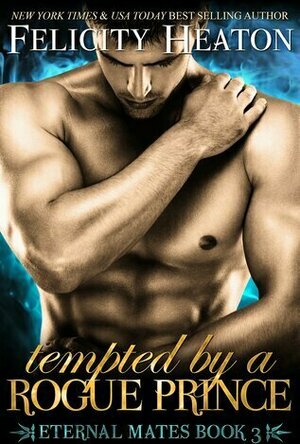
Tempted by a Rogue Prince (Eternal Mates #3)
Book
Dark elf prince Vail despises witches and will kill any who cross his path… So when fate...
Paranormal Romance
